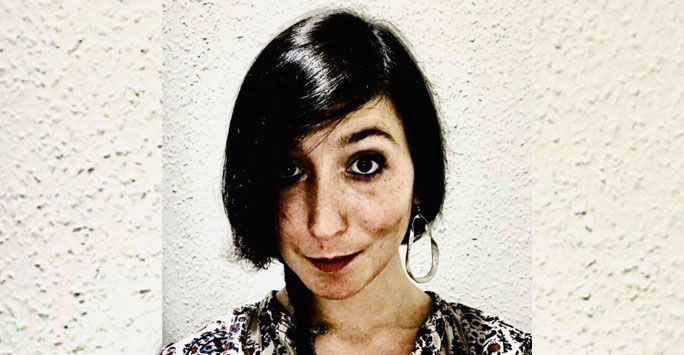
Meet this month's researcher in focus, Dr Elena Musi. Elena is a Lecturer in Artificial Intelligence and Communication at the Department Communication and Media. Her expertise lies at the interface between theoretical and Applied Linguistics, Communication Studies and Artificial Intelligence.
Elena is co-leading the Big Data and Digital Inclusion theme at the Centre for Digital Humanities & Social Sciences (DigHumSS) and she is academic lead for the New Forms of Data stream of Methods North West Doctoral School.
Before joining the University of Liverpool in February 2019, Elena worked as the Language Engineer for Alexa in Italian in the Amazon Alexa Applied Modelling and Data Science team (Cambridge, Massachusetts). Prior to that, she was a postdoctoral fellow at the Data Science Institute at Columbia University.
Bridging her academic research and her industry experience, Elena’s current research interweaves Artificial Intelligence and Communication Sciences with the broad aim of tracing back in a critical perspective debates about new technologies and their global impact, with particular focus on (mis)information and human-computer interaction.
Since joining the University, Elena has been PI on projects aimed at building infrastructures to foster critical thinking (“Parlia: an Encyclopaedia of Opinion”, Paul Hamlyn Foundation) and digital tools to promote healthy eating leveraging computational creativity (“Speak, think, eat: leveraging conversational bots to foster healthy eating”, Wellcome Trust- Institutional Strategic Support Fund Interdisciplinary and Industry fund).

She is currently leading on the COVID-19 rapid response project Being Alone Together: Developing Fake News Immunity (UKRI, Economic and Social Research Council) aimed at reverse-engineering the manipulation of information providing citizens with the means to act as fact checkers. Leveraging most cutting edge Natural Language Processing technologies and Discourse Analysis, the research team has conducted a large scale data analysis of COVID-19 news across digital media and identified a decalogue of misinformation triggers.
You can interactively learn how to identify misinformation by playing with the Fake News Immunity chatbot recently developed by the team. This is the first multi-agent chatbot that counters the infodemic while engaging in discussion with Aristotle, Gorgias, and Socrates: if you finish the game you will shift from being a credulous to an agnostic news reader!
Currently, the research team, in collaboration with Public Health England and Sefton Council, is focusing on mapping misinformation around the vaccine and building guidelines to help communication gatekeepers and citizens navigate the misinformation ecosystem.
Elena’s research has been published by top venues in Applied/Computational Linguistics as well as Discourse Studies such as Dialogue and Discourse, the Journal of Argumentation in Context, Informal Logic and Folia Linguistica.
Her monograph “Dalle Apparenze alle Inferenze” (‘From appearances to Inferences’) has just come out. In this volume, Elena provides a corpus-based analysis of how we talk and reason about appearances in the process of negotiating opinions and making sense of our realities.
Elena is an active member of lead academic associations in the fields of Computational Linguistics and Theoretical/Applied Argumentation. Recently, she has been area chair for “Sentiment Analysis, Stylistic Analysis, and Argument Mining” at the ACL (International Association for Computational Linguistics) 2020 conference (5-10 July 2020). She has been elected as a new member of the steering committee of ECA (European Conference Argumentation).